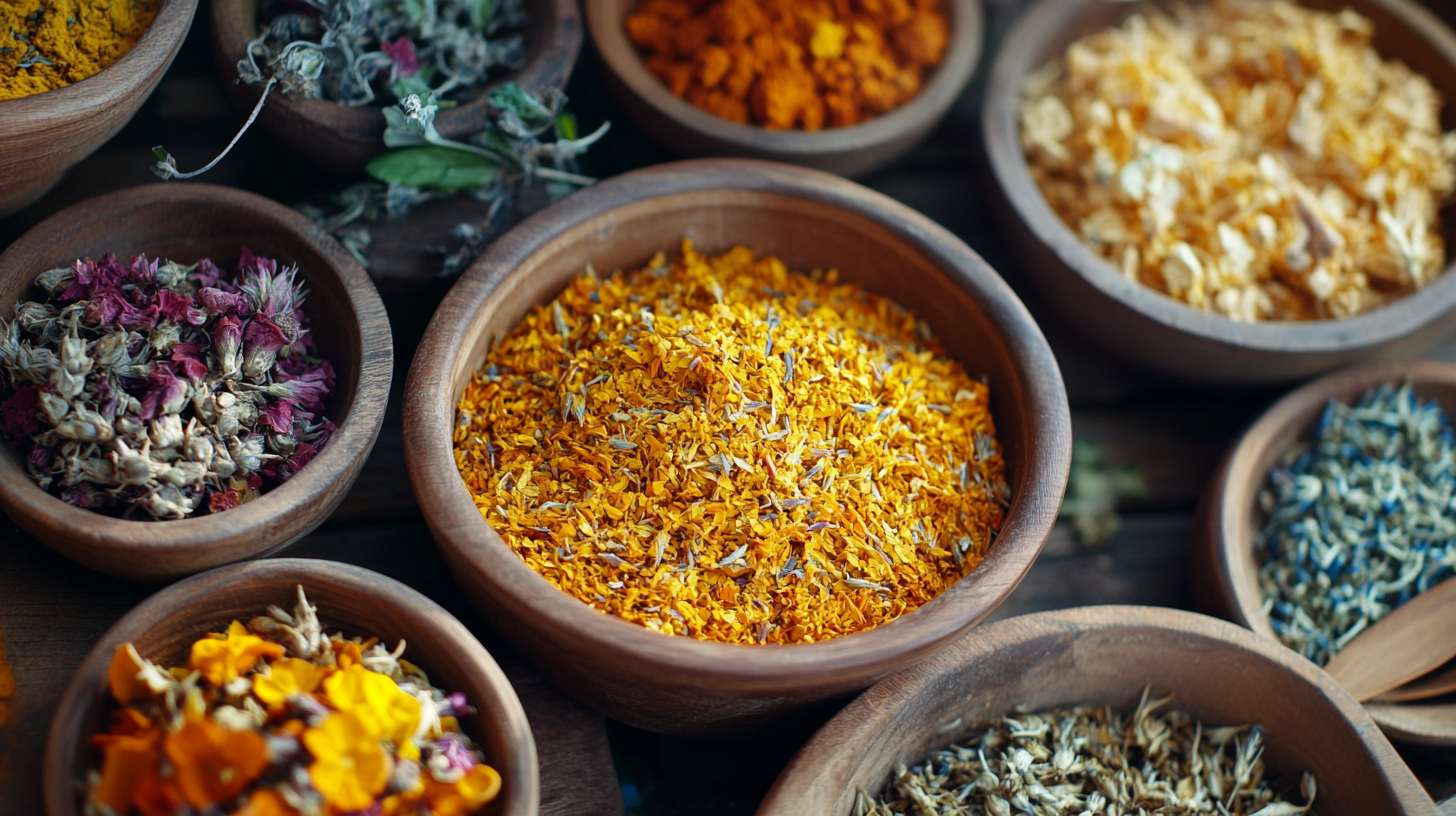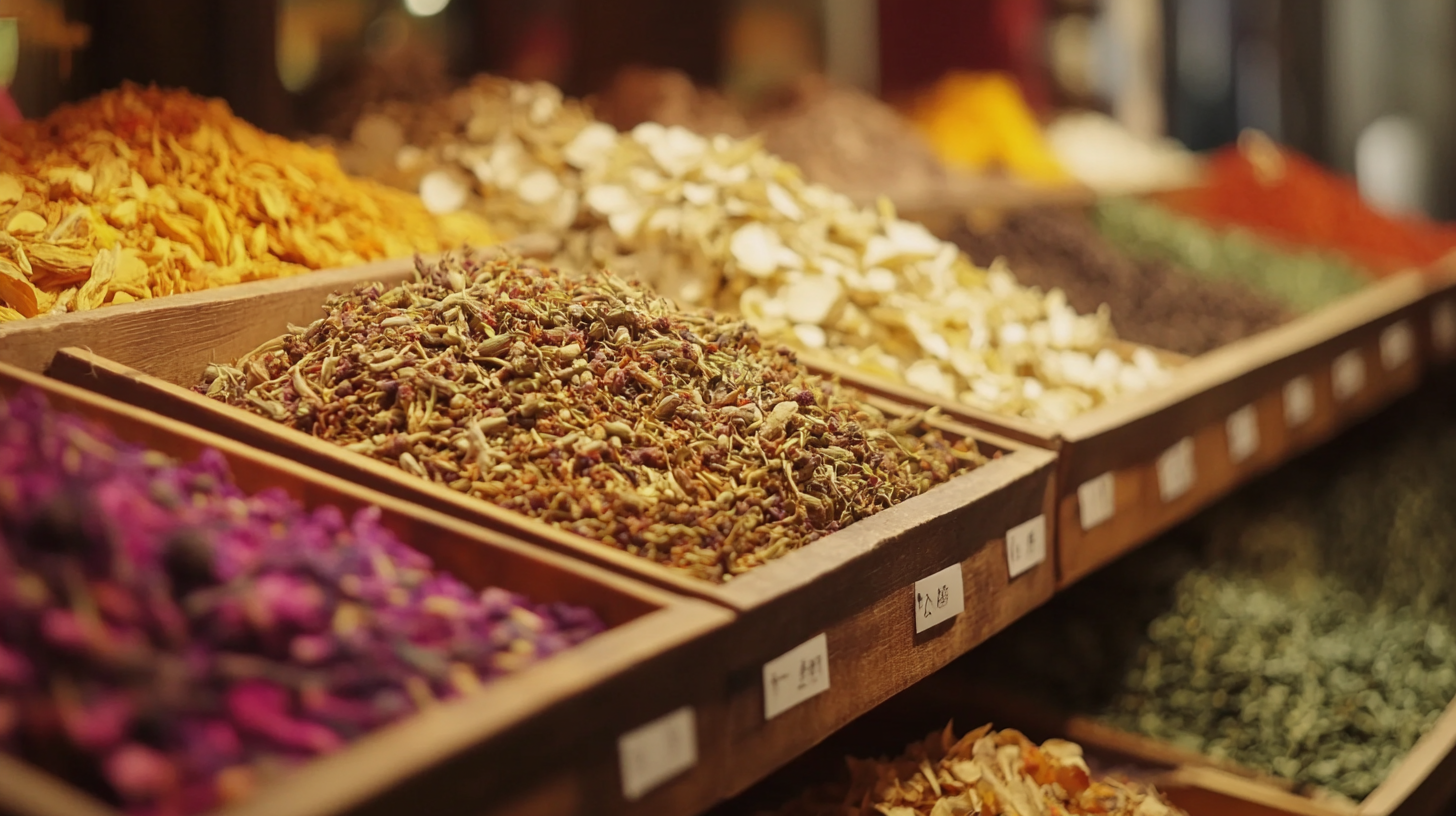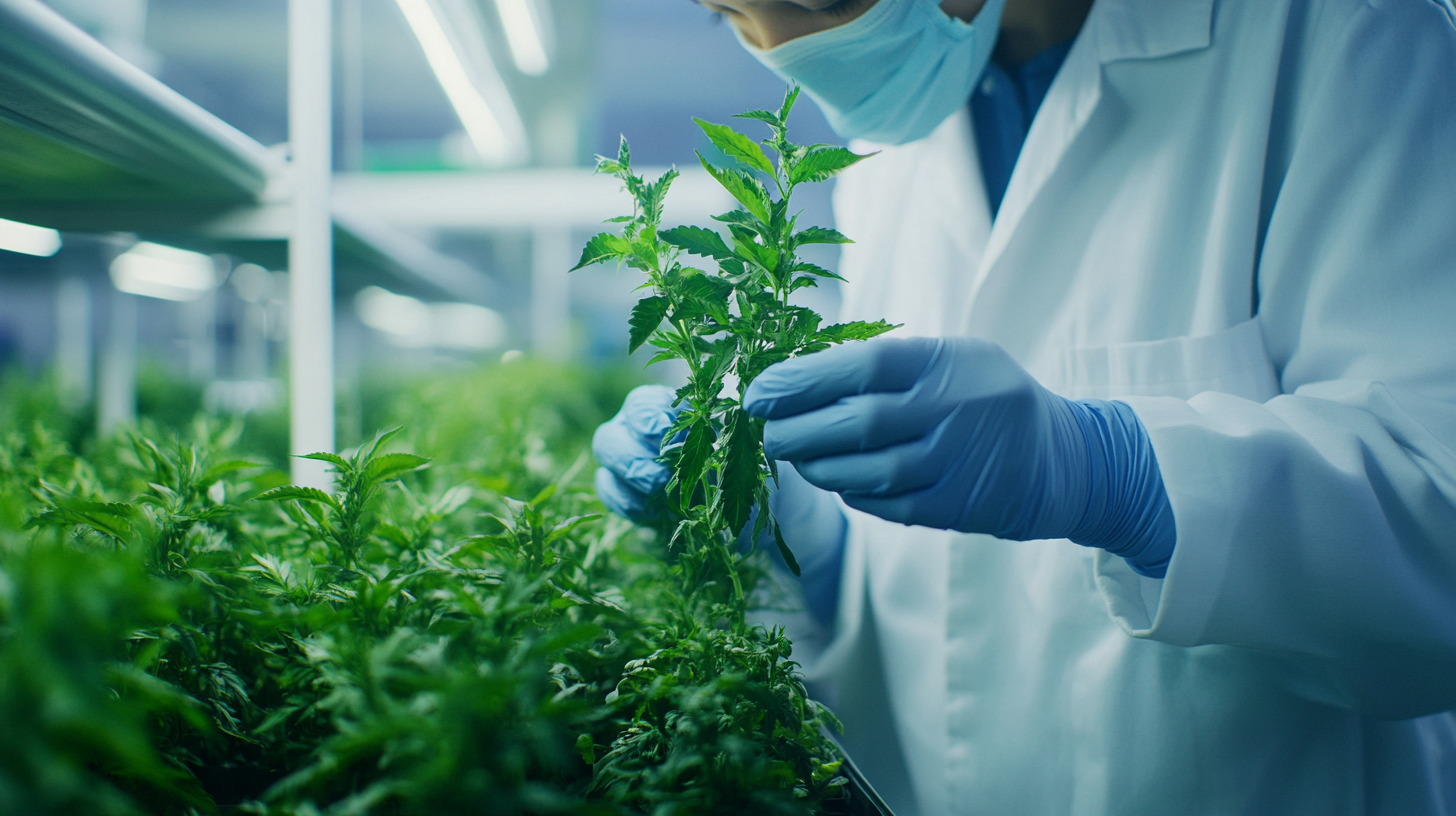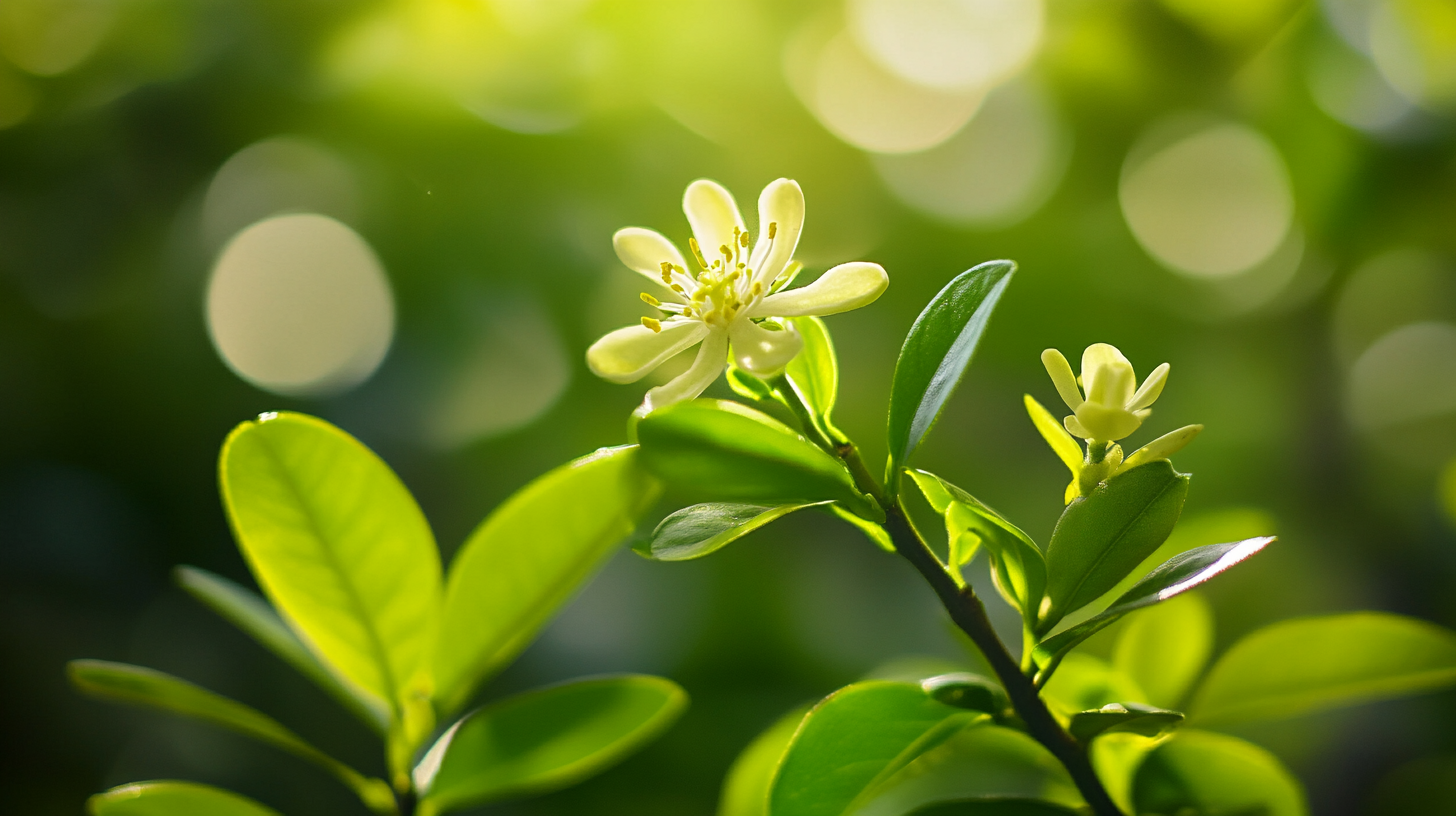In recent years, the global market for medicinal plant extracts has experienced a significant transformation, driven by an increasing consumer awareness of natural remedies and holistic health solutions. As modern medicine veers toward incorporating traditional practices, medicinal plant extracts have risen to prominence, showcasing their efficacy and versatility across various applications, including pharmaceuticals, cosmetics, and nutritional supplements. This convergence of traditional knowledge and contemporary expectations has opened up a wealth of opportunities, prompting stakeholders to explore the untapped potential within this thriving industry.
The growing trend towards herbal and plant-based medications also reflects a shift in consumer preferences toward sustainability and eco-friendliness. As more people seek alternatives to synthetic chemicals, the demand for high-quality medicinal plant extracts is surging. This blog will examine key data insights, market trends, and emerging opportunities in the medicinal plant extracts sector, providing a comprehensive overview of how businesses can navigate this dynamic landscape and leverage the increasing interest in natural health solutions. By exploring these trends, we aim to empower industry players to make informed decisions and harness the potential of medicinal plant extracts in meeting the ever-evolving market demands.

The current state of the medicinal plant extracts market showcases a dynamic landscape characterized by significant growth and potential. According to industry analyses, the global plant extracts market is anticipated to experience a remarkable compound annual growth rate (CAGR) of 12.3% from 2022 to 2027. This growth trajectory is driven by increasing consumer demand for natural products and the rising awareness of the health benefits associated with medicinal plants. In the realm of skincare, a segment closely linked to medicinal plant extracts, the market size was valued at approximately $115.65 billion in 2024. Projections indicate continued momentum, with expectations for this market to soar from $122.11 billion in 2025 to an impressive $194.05 billion by 2030. This surge underscores the rising trend among consumers gravitating towards natural and organic formulations, eliciting opportunities for brands to innovate and incorporate more plant-based extracts into their offerings. Furthermore, as the health and wellness sector evolves, investors and businesses eye the increasing overlap between traditional medicine and modern skincare. The incorporation of medicinal plant extracts not only taps into the growing demand for clean beauty products but also aligns with consumers' preferences for sustainability and ethical sourcing. As market dynamics shift, businesses that strategically leverage these trends stand to gain a competitive advantage in the ever-expanding global market.

In recent years, the medicinal plant extracts market has witnessed significant growth driven by a surge in consumer interest in natural and holistic health remedies. This shift towards herbal healing has been further bolstered by innovations in extraction technologies, which have enhanced the efficacy and bioavailability of plant-based compounds. Techniques such as supercritical fluid extraction and ultrasonic extraction are enabling manufacturers to obtain higher yields of active ingredients, making these products more appealing to health-conscious consumers.
Moreover, advancements in research and development are paving the way for new applications of medicinal plant extracts. The pharmaceutical and nutraceutical industries are increasingly exploring the therapeutic potential of lesser-known herbs and their derivatives, which has led to the discovery of novel phytochemicals with promising health benefits. This trend not only drives market growth but also supports sustainable practices by encouraging the use of diverse plant species in product formulations.
Additionally, the rise of organic and non-GMO certifications is influencing the global demand for medicinal plant extracts. Consumers are becoming more discerning, seeking products that align with their values of health and sustainability. Companies are responding by investing in transparent sourcing and eco-friendly practices, which not only enhance their brand reputation but also contribute to a more responsible supply chain. As these trends continue to evolve, the medicinal plant extracts market is poised for exciting opportunities in the years ahead.

The global market for medicinal plant extracts is experiencing significant growth, driven largely by increasing consumer awareness of health and wellness trends. This burgeoning sector is characterized by a variety of sources including spices, herbs, flowers, and leaves, each contributing unique benefits to various industries such as food and beverages, cosmetics, and pharmaceuticals. Between 2022 and 2027, the market is expected to exhibit an impressive compound annual growth rate (CAGR) of 12.3%, highlighting the rising demand for natural and organic products.
Regional analysis reveals key markets that are emerging as powerhouses in the medicinal plant extract sector. In particular, regions rich in biodiversity, such as Southeast Asia and South America, are leveraging their unique flora to tap into this lucrative market. For instance, the herbal extract segment is projected to reach a staggering USD 78.4 billion by 2034, growing at a CAGR of 7.6% from 2025 to 2034. This trend indicates a robust interest in herbal remedies and natural ingredients across different consumer demographics.
Furthermore, specialized extraction technologies, such as CO2 extraction, are enhancing the quality and purity of plant extracts, thereby expanding their applications in various fields. As the global market evolves, these advancements will create new opportunities, making this a dynamic area for investment and innovation. The insights garnered from key market data and trends will be invaluable for stakeholders looking to navigate and succeed in the competitive landscape of medicinal plant extracts.

The global medicinal plant extract industry is experiencing significant growth; however, it faces a myriad of challenges that could hinder its potential. One of the primary obstacles is the regulatory landscape. According to a report by the World Health Organization, as of 2021, over 80% of countries have no specific legislation for herbal products, creating inconsistencies that can frustrate manufacturers and consumers alike. This lack of regulatory clarity affects the quality control of medicinal plant extracts, leading to concerns over safety and efficacy.
Furthermore, the market is increasingly grappling with sustainability issues. The demand for medicinal plant extracts is projected to reach $50 billion by 2028, according to Fortune Business Insights, but the overharvesting of wild plant species poses a significant threat to biodiversity. Many key raw materials, such as Echinacea and Ginseng, are facing population declines due to unsustainable extraction practices. This raises not only ecological concerns but also the potential for increased production costs as sourcing becomes more challenging.
Market players also face intense competition from synthetic alternatives, which are often cheaper and more consistent than their natural counterparts. The rise of biotechnology has further complicated the landscape, as companies invest in lab-grown alternatives to traditional plant extracts. This trend could lead to a decrease in market share for companies relying solely on wildcrafted plant materials. As the industry navigates these challenges, understanding the regulatory frameworks, implementing sustainable practices, and embracing innovation will be crucial for flourishing in this dynamic market.
The medicinal plant extract market is on the brink of significant transformation as global interest in natural remedies continues to surge. As consumers increasingly seek alternatives to synthetic pharmaceuticals, the demand for potent plant-based extracts is projected to rise sharply. This shifting consumer preference, coupled with an expanding body of research supporting the efficacy of these extracts, positions the market for substantial growth in the coming years.
In particular, the Asia-Pacific region is emerging as a pivotal hub for medicinal plant extract production and innovation. Countries like India and China are not only rich in biodiversity but also have established frameworks for sustainable harvesting and production. This region's historical use of herbal medicines, combined with a younger demographic's inclination toward wellness and holistic health, is likely to drive investment and development in medicinal plant extracts.
Furthermore, advancements in extraction technologies are opening new avenues for market expansion. Techniques such as supercritical fluid extraction and microwave-assisted extraction are enhancing the purity and potency of these extracts. As manufacturers leverage these technologies to create high-quality products, new opportunities will arise in sectors like cosmetics, dietary supplements, and functional foods. The cross-industry potential of medicinal plant extracts indicates that investors and entrepreneurs should closely monitor emerging trends and consumer preferences to capitalize on this growing market.
2025 Bio-Botanica, a division of Bio Answer Holdings Inc. All Rights Reserved.